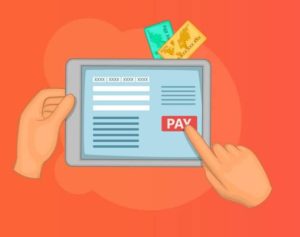Risks of Saving Card Details Online and Protecting Oneself
We often save our card details online without even knowing the risks associated with it. Be it for shopping or for applying somewhere, a credit card or a debit card always comes in handy. According to the website, finder.com.au, around 73.3% of the people who buy things online save their card details (credit or debit) while making the payment.
However, there are quite a number of online frauds out there who steal your card details as you store it in there.
This can be done in a number of ways, be it skimming which means copying the card information illegally or phishing, where the frauds impersonate the verified websites and convince the people to share their card details online.
Now, let us see in what ways, one can safeguard himself or herself while sharing confidential data online!

1. Avoid saving your card details online
It is always convenient to save your card details while shopping online as you do not have to enter the information every single time. However, in order to be safe and not sorry, it’s better if you do it each time you make a purchase because you never know who might be trying to steal your data from there.
2. A credit card is a better option than a debit card
While shopping online, always try and use a credit card instead of a debit card. There is a reason for this. There are better protection laws for credit cards than debit cards. Also, if you use a credit card, you do not lose the money immediately as in the case of a debit card. The security percentage is much higher in case of a credit card.
3. Look for HTTPS, not HTTP
A website with HTTPS in the address bar guarantees more security than one with HTTP. It means that the website people have used an SSL certificate in order to encrypt your sensitive data and thus keep it safe. So, while sharing your data online, always remember to look for https, and not HTTP.
4. Install a good anti-virus software
Anti-virus software is meant to protect your computer or your Smartphone from outside attacks. Viruses and spyware can steal confidential information or even delete important files from your phone or your PC quite easily. In order to keep your system safe from such malware, it is imperative that you install authentic anti-virus software. Also, make sure that you update them regularly.
5. Don’t share information on public Wi-Fi
Public Wi-Fi is generally not secure and can be used by anyone. These do not use encryption methods and hence, it becomes extremely easy for hackers to steal your data. All they would have to do is get your email ID and password. There are fake Wi-Fi networks as well, and if you log in using those, the hackers immediately have all your information. Thus, you should always avoid using public Wi-Fi, and in case you have no option but to use one, use VPN software. Also, while logging on to websites, check if they have SSL certificates or not.

6. Never give your credit card number to anyone over email
If you share your card number with anyone via an unencrypted connection, you put your data at high risk of being exposed. There are some businesses and companies which might ask you to share your card number via email. However, always ask for other options, no matter what the necessity is. Also, phishing is common where hackers might ask your confidential information while faking it as your bank. Always remember that your bank will never ask for any sensitive data via email.
7. Keep changing your passwords often
Never use the same password for a very long time. A hacker might try to get access to your account more often than not. Changing your passwords regularly will thwart all of his/her attacks right in the beginning. Also, you might have saved one of your passwords on some computer or phone which someone else could gain access to. Changing passwords often will ensure that the old password that you had saved is of no use. Recording keystrokes is one of the most common ways of stealing your sensitive data. Having a new password on a regular basis will make sure that the passwords that they got hold of would not work for long. Using a strong password would mean that they would not be able to guess your password easily.
8. Update your phone’s operating system and enable mobile notifications
One should always see to it that his or her phone has all the security updates activated. Rooting or any other form of security control should never be deleted from the smartphones. Also, while installing an app, they should always restrict the access of the app to what it actually needs. Enabling mobile notifications is very necessary as well. That will notify you in case there is an unusual transaction. Other than that, the bank would also send you notifications in case there have been quite a number of failed attempts trying to log in to your account.
9. Type your bank URL yourself
If you get a mail with a link that directs you to your bank website, never click on it. It might be from one of those online frauds who are trying to get your personal information. As you would type out your login data there, they would get all the details they need. So, it is always better to type out the bank URL yourself instead of following any link.
10. Use a temporary credit card number
There are certain card issuers who give you a temporary card number that would work only for a certain period of time. You can do everything with that card number, just as you can with a permanent one, the only difference being that it would be useful only within a stipulated time. So, even if a hacker gets that number through illegal means, it would be of no use to him/her later. Hence, using a temporary credit card number is certainly a great option that one has to protect one’s account.
By- Vasp Technologies
Also, check more about the Mutual Funds “Mutual Fund best way to save money” at knowandask


